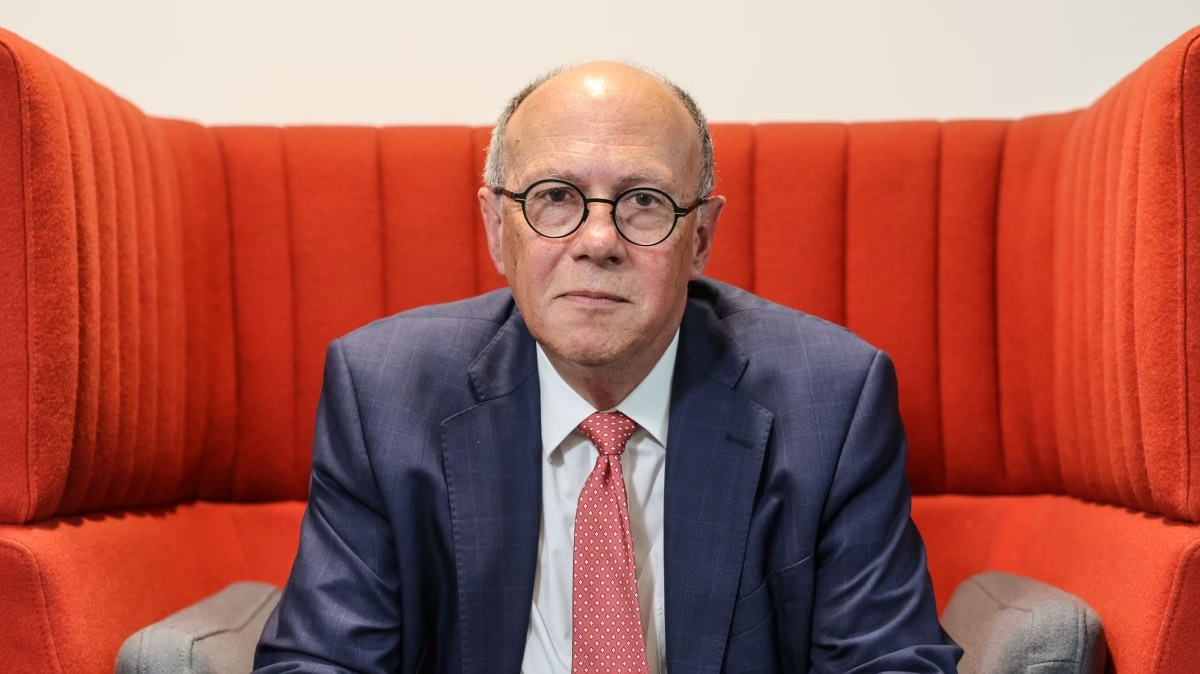Cancer treatment is approaching a golden age as the disease becomes a manageable condition rather than a death sentence, the NHS’s leading doctor has said.
Professor Sir Stephen Powis said medical breakthroughs are “accelerating at such a pace” that more cures for cancers will be found, building on progress that has caused survival rates to double in 50 years.
The NHS is in the foothills of a “treatment revolution”, which will involve rolling out drugs which train the immune system to kill cancer cells, and using genetic tests to tailor treatment to individuals.
This era of personalised immunotherapy is becoming a part of routine cancer care for thousands of NHS patients, providing a weapon against previously deadly types of cancer.
Powis, the outgoing national medical director of NHS England, said: “We are at the cusp of a golden era in terms of the way we treat a range of cancers. People are living longer with cancers and surviving cancers, and we are curing some cancers, and that trend will continue over time.
“For many cancers now, people should be confident that it’s not a death sentence and that more treatments will become available.
Professor Sir Stephen Powis, the outgoing national medical director of NHS England, is optimistic about the future
TIMES PHOTOGRAPHER RICHARD POHLE
“Our understanding of the genetics of cancer, of the way we can target cancers with particular drugs, and how we can use the body’s own immune system to target cancers itself, is being revolutionised.”
One in two people will get cancer in their lifetime, and there are 385,000 cancer diagnoses each year in the UK. Improvements in care mean one in two people now survive for at least ten years, compared to just one in four in the early 1970s. For breast cancer, three in four women now survive for ten years after diagnosis.
The NHS is beginning to tailor cancer treatment to individual patients and cases
ALAMY
In his final interview before retirement, Powis said he expects “great advances in cancer survival” to continue as scientists develop drugs which harness the immune system to destroy cancer in a “golden age of cancer treatments”.
One of the most exciting developments is the field of personalised cancer vaccines, a type of immunotherapy which trains the body to kill cancer cells, using the same mRNA technology used in the Covid vaccine.
The vaccines have shown promise in boosting survival for skin, bowel, lung, brain and pancreatic cancers, and will be given to up to 10,000 patients on the NHS over the next five years.
Powis, who qualified as a doctor 40 years ago this month, compared the progress against cancer to the advances in preventing and treating Aids during his career.
• Five-minute ‘superjab’ for 15 cancers to be available on NHS
He said: “As a young doctor, I saw the terrible pain and the death HIV/Aids caused to patients. Then, as you roll the clock forward, you see treatments coming in, successful therapies.
“We are now at the point where it is a condition that can be managed, and people can live a normal life that just couldn’t have been imagined back in those dark days of the 1980s. When you look at that wider time frame, then goodness me — doesn’t medicine advance?”
He said a focus on prevention, such as the smoking ban for younger generations, means certain cancers will be eliminated. The NHS is on track to end cervical cancer by 2040 thanks to the HPV vaccine.
Powis said: “Some of the diseases I’ve seen over my 40 years will be rare diseases for doctors in the next 40 years. The lung cancers that I’ve seen hopefully will be a lot rarer because of the interventions that we made.
“We can’t prevent all cancers, but there are cancers that we can certainly prevent.”
In a world first, the NHS has started to offer lung and breast cancer patients DNA blood tests that identify the genetic profile of their tumours, so they can be fast-tracked on to personalised treatment plans, which gives them a better chance of survival.
Powis said: “Cancer treatment will get much more individualised. That’s being driven by genetics. The ability to pinpoint the mutation in cells that is causing the cancer is infinitely better than it was only 10-20 years ago.”
Powis, a kidney specialist who is a professor at University College London, has served as the national medical director of NHS England since January 2018. He led the health service’s response to the Covid pandemic, appearing at Downing Street press conferences.
He is being replaced by Professor Meghana Pandit, an obstetrician, and Dr Claire Fuller, a GP.
Powis is working with Professor Sir Chris Whitty, England’s chief medical officer, on a review aiming to improve training and working conditions for young doctors in the NHS.
Reflecting on his career, he said medicine has “become less paternalistic, and that is a very very good thing indeed”, and it is important that the profession attracts people from more diverse backgrounds.
“I don’t come from a family of doctors. My father started off life as a miner in north Wales, and most of my relatives on my father’s side were miners,” Powis said.
“It’s really important that we have a diverse range of people coming into medicine, and it’s as representative as the people that we treat as possible.
“It helps address health inequalities. One of the things that is most important as a doctor is seeing the world through the lens of the patient you’re treating.”
• Doctors’ strike: hospitals face bill of £4,000 a shift
• Ten-year NHS plan: summary of the key points
Powis added that his work in the NHS has left him “more convinced than ever” that it is the best right healthcare model for the UK, and said it is vital that the Labour government’s ten-year plan succeeds.
He warned that the greatest challenge facing the NHS was changing demographics. “A greater proportion of our population is living into their 70s, 80s and 90s. The baby boomers, like me, are coming through, and we are living longer. And so that’s a big challenge for the health service, because people in those age groups often have medical conditions, and they often have more than one medical condition.
“Secondly, of course, this is an economic problem. It means the younger population is increasingly supporting the older population. And if the economy isn’t doing as well as it should, then obviously that is a problem for funding the NHS.”




Leave a Reply